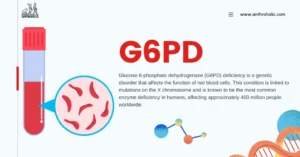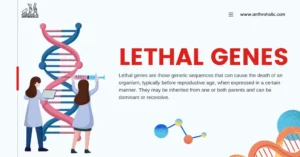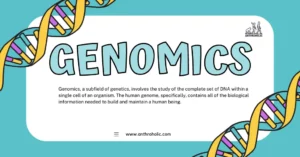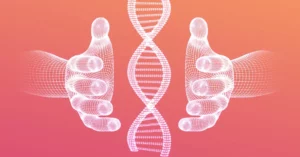AI Answer Evaluation Platform Live Now. Try Free Answer Evaluation Now
Chromosomal Analysis
An important sphere of research in the field of anthropology is chromosomal analysis. In order to comprehend the genetic underpinnings of human biology and evolution, chromosomal analysis of living beings plays a very critical role. Chromosomal analysis can reveal important details regarding genetic diversity in humans, population genetics, and the forces that drive evolution. Understanding the biological and evolutionary processes that have shaped the human species is essential. Important issues about human biology and the causes of human diversity can also be answered using them. Chromosomal analysis is an important tool for anthropologists , which allows them to develop insights into the intricate interplay between genetics, environment, and culture that give rise to human biology and evolution and explains the diversity. In short, chromosomal analysis is a key component of modern anthropology, and is essential to advance our knowledge of biology and the origins of human diversity.
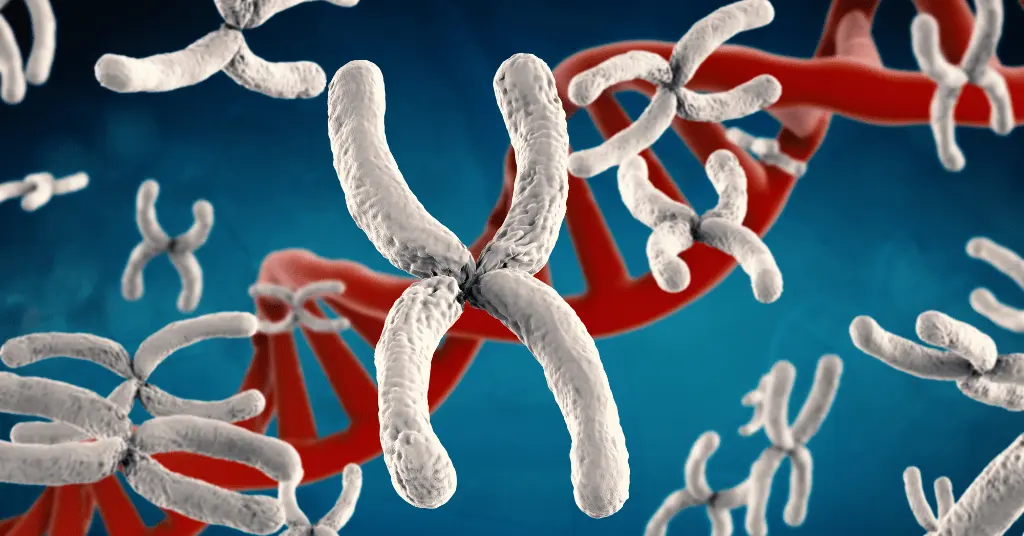
Background
Chromosomes are string-like structures made up of nucleic acids and protein. They carry genetic information in the form of genes.They play a vital role in determining an organism’s traits and characteristics. Chromosomal analysis involves the study of chromosomes to test their structure, function, and evolution. It also identifies the genetic abnormalities (if any) as the cause of syndrome or disease.
In anthropology, chromosomal analysis is used to examine the genetic basis of human biology and its evolution. Also to interpret the mechanisms that drive human variation. The 46 chromosomes that make up the human genome. It carries the DNA, our genetic material, all the required knowledge about our body.
Chromosomal analysis can reveal information about the presence of genetic mutations, duplications, deletions, and other changes that can affect an individual’s traits and health. It can also provide information about the relationships between different populations and the history of human evolution.
The development of new technologies has enabled researchers to analyse chromosomes in greater detail than ever before, providing a more complete picture of human biology and evolution. The field of chromosomal analysis in anthropology is a rapidly growing area of study, and it is providing important insights into the biological and evolutionary processes that shape the human species.
In anthropology, chromosomal analysis is used to examine the genetic basis of human biology and evolution, and to understand the mechanisms that drive human variation. The human genome, which consists of 46 chromosomes, provides a wealth of information about human biology and evolution. Chromosomal analysis can reveal information about the presence of genetic mutations, duplications, deletions, and other changes that can affect an individual’s traits and health. It can also provide information about the relationships between different populations and the history of human evolution. The development of new technologies has enabled researchers to analyse chromosomes in greater detail than ever before, providing a more complete picture of human biology and evolution. In conclusion, the field of chromosomal analysis in anthropology is a rapidly growing area of study, and it is providing important insights into the biological and evolutionary processes that shape the human species.
Chromosomal Variation in Humans
Chromosomal variations are a fundamental aspect of human biology and evolution, and they play a crucial role in the field of chromosomal analysis in anthropology. Chromosomal variations are changes to the structure or number of chromosomes that can occur in individuals and populations. Some of the most common types of chromosomal variations include mutations, duplications, deletions, and other changes.
Mutations are changes to the DNA sequence that can occur in a single gene or across multiple genes. Duplications occur when a section of the chromosome is duplicated, resulting in extra genetic material. Deletions occur when a section of the chromosome is missing, leading to a loss of genetic material. Chromosomal variations can have significant effects on an individual’s health and development, and they can be associated with a range of genetic disorders and diseases.
The study of chromosomal variations in humans is essential for understanding the biological and evolutionary processes that shape the human species. Chromosomal analysis can reveal information about the genetic basis of human variation, population genetics, and the history of human evolution. This information is critical for addressing important questions about the origins of human diversity, the genetic basis of disease, and the mechanisms that drive human evolution.
Chromosomal variations are a fundamental aspect of human biology and evolution, and they play a critical role in the field of chromosomal analysis in anthropology. The study of chromosomal variations provides important insights into the biological and evolutionary processes that shape the human species, and it is essential for advancing our understanding of human biology and the origins of human diversity.
Karyotype : The Process of Chromosome Analysis
Chromosome analysis, also known as karyotyping, is a laboratory technique used to study the number and structure of chromosomes in a cell. It is an important tool in anthropology for various reasons, including the diagnosis of genetic disorders, the study of human evolution, and the determination of ancestry and relationships. Here are the key steps involved in the process of chromosome analysis:
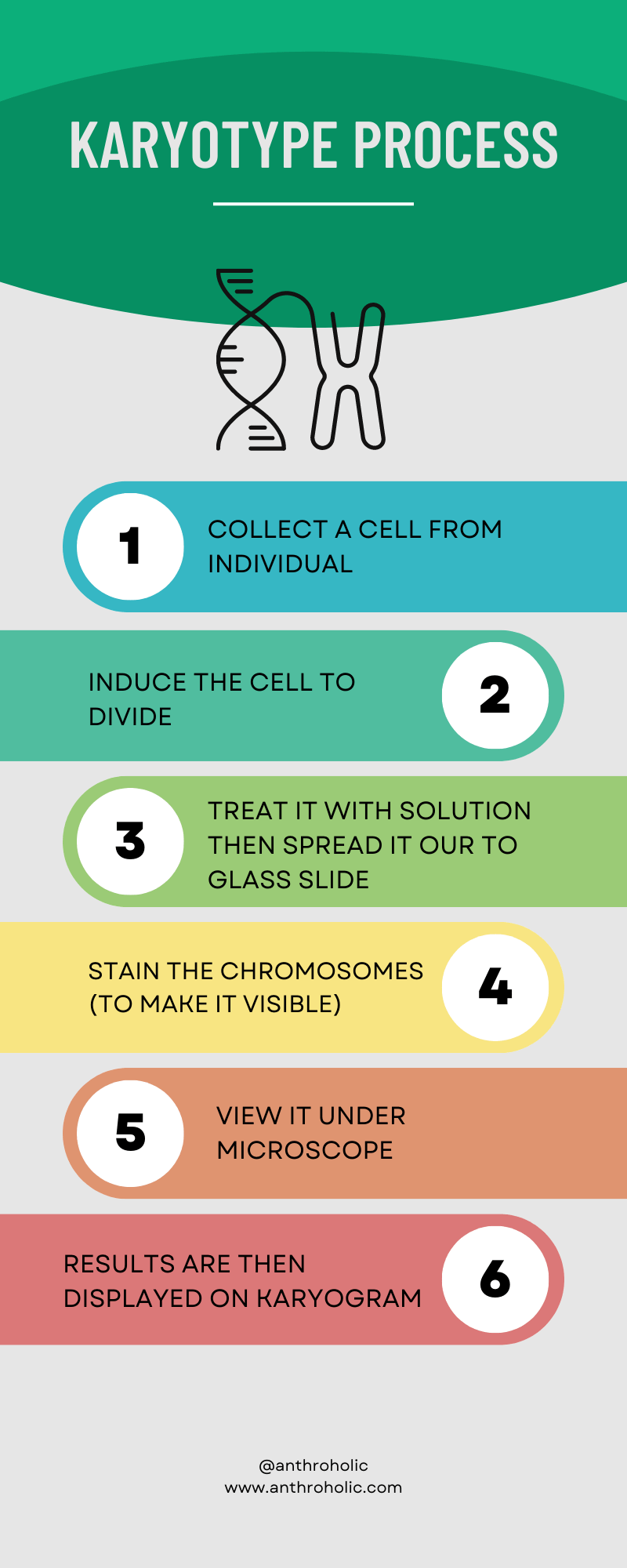
- Cell preparation: A sample of cells is taken from the individual, typically using a blood sample or a tissue biopsy. The cells are then grown in a laboratory culture to produce a sufficient number of cells for analysis.
- Cell fixation and spreading: The cells are treated with a solution that fixes or kills them, and then spread out onto a glass slide to form a single cell layer.
- Staining: The cells are stained with a special dye that makes the chromosomes visible under a microscope. The most commonly used dye is Giemsa, which stains the chromosomes different shades of light and dark.
- Microscopy: The stained cells are then viewed under a microscope to observe the chromosomes. They are usually aligned in pairs, with each pair representing a single chromosome. The chromosomes are then counted and their sizes and shapes are recorded.
- Chromosome analysis: The chromosomes are analysed to determine the number of chromosomes present, as well as any structural abnormalities or variations. This information can be used to diagnose genetic disorders or to study the genetic diversity and relationships among populations.
- Karyogram: The results of the chromosome analysis are displayed in a karyogram, which is a graphic representation of the chromosomes arranged in order of size and shape. This allows for easy comparison and analysis of the chromosomes.
- Interpretation of results: The results of the chromosome analysis are interpreted by a geneticist or a medical doctor, who can use the information to diagnose genetic disorders, determine relationships, or study the evolution of human populations.
Chromosomal analysis is a valuable tool in anthropology for studying the genetic basis of human diversity and relationships, and for diagnosing and understanding genetic disorders.
Role of Chromosomal Analysis in Anthropology
Here are the key points regarding the role of chromosomal analysis in anthropology:
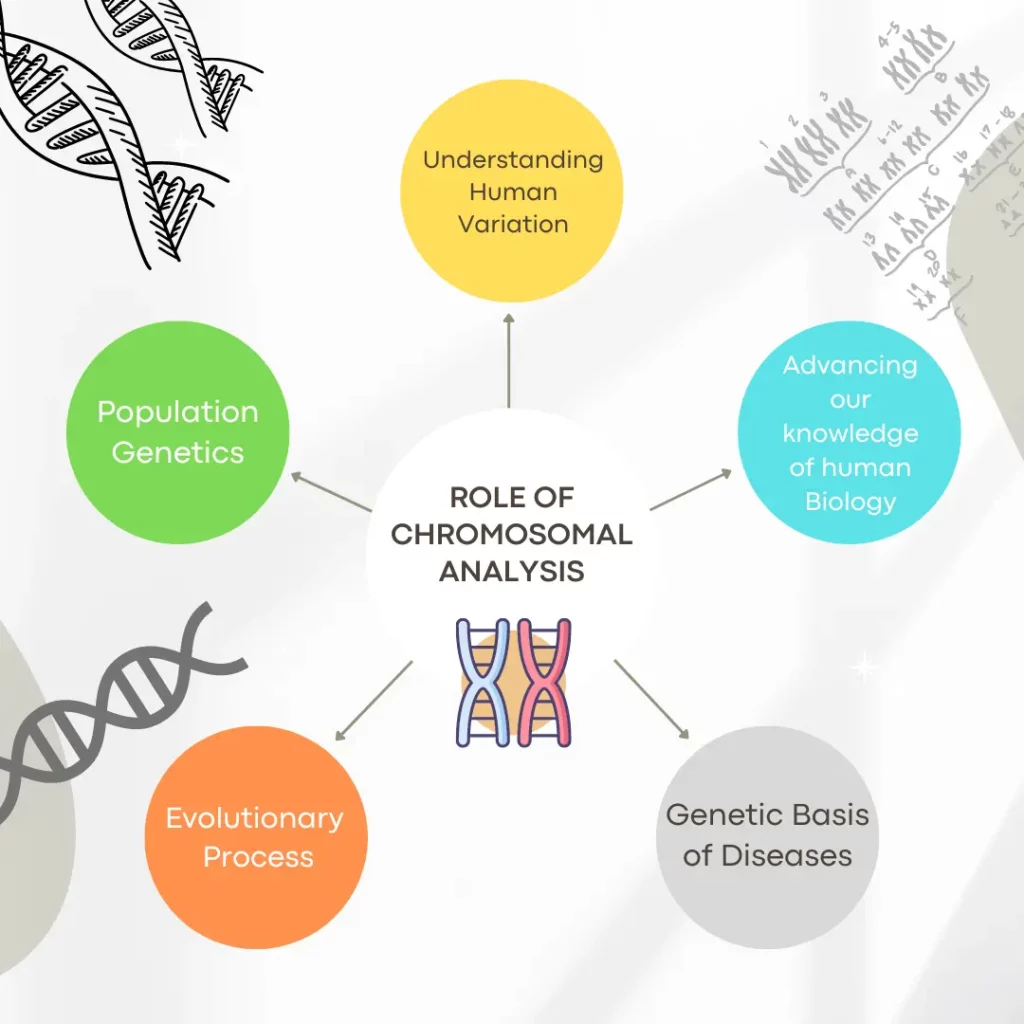
- Understanding human variation: Chromosomal analysis provides insights into the genetic basis of human variation, allowing anthropologists to study the relationships between different populations and the origins of human diversity. [1]
- Population genetics: Chromosomal analysis is used to study population genetics, including the history of human migration and the relationships between different populations. [2]
- Evolutionary processes: Chromosomal analysis can reveal information about the mechanisms that drive evolution, including mutation, duplication, and deletion of genetic material. [3]
- Genetic basis of disease: Chromosomal analysis is used to study the genetic basis of disease and the relationship between genetics and disease.
- Advancing our understanding of human biology: Chromosomal analysis provides important insights into human biology, including the genetic basis of traits and characteristics.
Case Studies
There have been numerous case studies in which chromosomal analysis has played a critical role in advancing our understanding of human biology and evolution in anthropology. Here are a few examples:
- Polycystic ovary syndrome (PCOS): Chromosomal analysis was used to identify the genetic basis of PCOS, a common reproductive disorder that affects women. The study revealed that PCOS is associated with several genetic mutations, including those in genes involved in insulin regulation and steroid hormone production.
- Down syndrome: Chromosomal analysis was used to study the genetic basis of Down syndrome, a genetic disorder caused by the presence of an extra copy of chromosome 21. The study revealed that Down syndrome is associated with specific changes in chromosome structure and function, and it provided important insights into the genetic basis of this disorder.
- Human evolution: Chromosomal analysis has been used to study the history of human evolution, including the relationships between different populations and the mechanisms that drive evolution. For example, a study of the human Y chromosome revealed important insights into the evolutionary history of human populations and the relationships between different populations.
- Genetic basis of disease: Chromosomal analysis has been used to study the genetic basis of various diseases, including cancer, heart disease, and diabetes. For example, a study of the genetic basis of heart disease revealed important information about the role of genetic mutations in the development of this disease.
Chromosomal analysis has played a critical role in numerous case studies in anthropology, providing important insights into human biology and evolution and advancing our understanding of the genetic basis of human variation, population genetics, and the mechanisms that drive evolution.
Limitations and Ethical Considerations
While chromosomal analysis is a valuable tool for studying human biology and evolution, it is not without its limitations and ethical considerations. Some of the key limitations and ethical considerations include:
- Technical limitations: Chromosomal analysis is a complex and technical field, and there are limitations to the accuracy and precision of the results. For example, there may be limitations in the quality of the samples used, and there may be limitations in the ability to accurately identify and quantify chromosomal variations. [4]
- Privacy concerns: Chromosomal analysis involves the collection and analysis of sensitive personal information, including genetic data. This raises important privacy concerns, including the potential for genetic discrimination and the misuse of genetic information. [5]
- Ethical considerations: There are numerous ethical considerations associated with chromosomal analysis, including the potential for genetic discrimination, the potential for exploitation, and the potential for harm to individuals and populations. [6]
- Interpreting results: Chromosomal analysis results can be complex and difficult to interpret, and it is important to consider the limitations and potential biases in the interpretation of results. [7]
- Informed consent: It is important to obtain informed consent from individuals before collecting and analysing their genetic information, and it is important to respect the privacy and autonomy of individuals in the use and interpretation of genetic information.
References
[1] Tishkoff, S. A., & Verrelli, B. C. (2003). Patterns of human genetic diversity: implications for human evolution. Annual review of genetics, 37(1), 551-578.
[2] Jobling, M. A., & Tyler-Smith, C. (2003). The human Y chromosome: an evolutionary marker comes of age. Nature Reviews Genetics, 4(2), 598-612.
[3] Wall, J. D., & Lahn, B. T. (2007). The evolution of the human genome. Trends in Ecology & Evolution, 22(10), 564-572.
[4] American Anthropological Association (2017). Principles of Biomedical Ethics in Anthropology. American Anthropologist, 119(3), 512-522.
[5] Harris, J. (2007). Genealogy and the Ethics of Chronic Disease: Whose Disease Is It Anyway?. In The New Genetics and the Future of Medicine (pp. 89-101). Springer, Dordrecht.
[6] Knoppers, B. M., & Hirtle, M. (2011). Genetic privacy: an international overview of data protection and privacy laws. Hum Genet, 129(3), 223-236.
[7] Green, R. C., & Botkin, J. R. (2007). The ethics of genetic research on children. Paediatrics, 120(6), 1356-1360.
Suggested Reading: https://www.ncbi.nlm.nih.gov/pmc/articles/PMC1720203/

